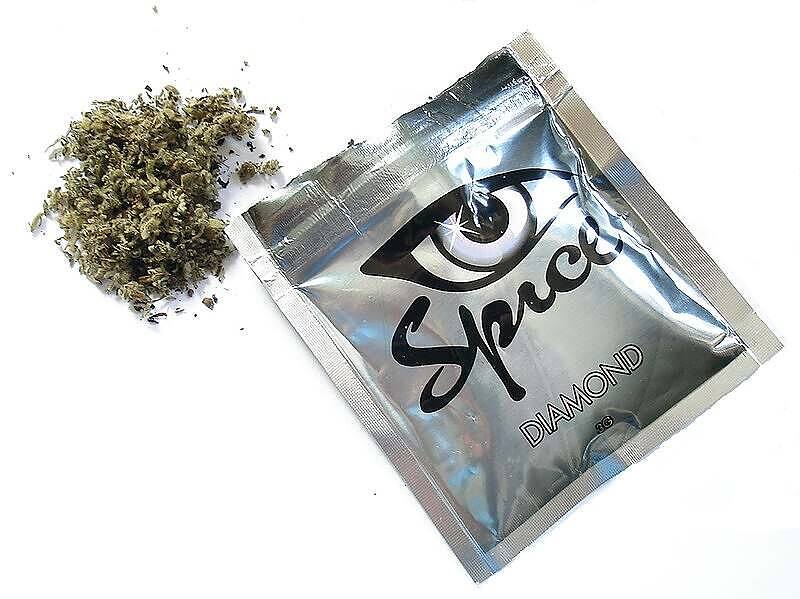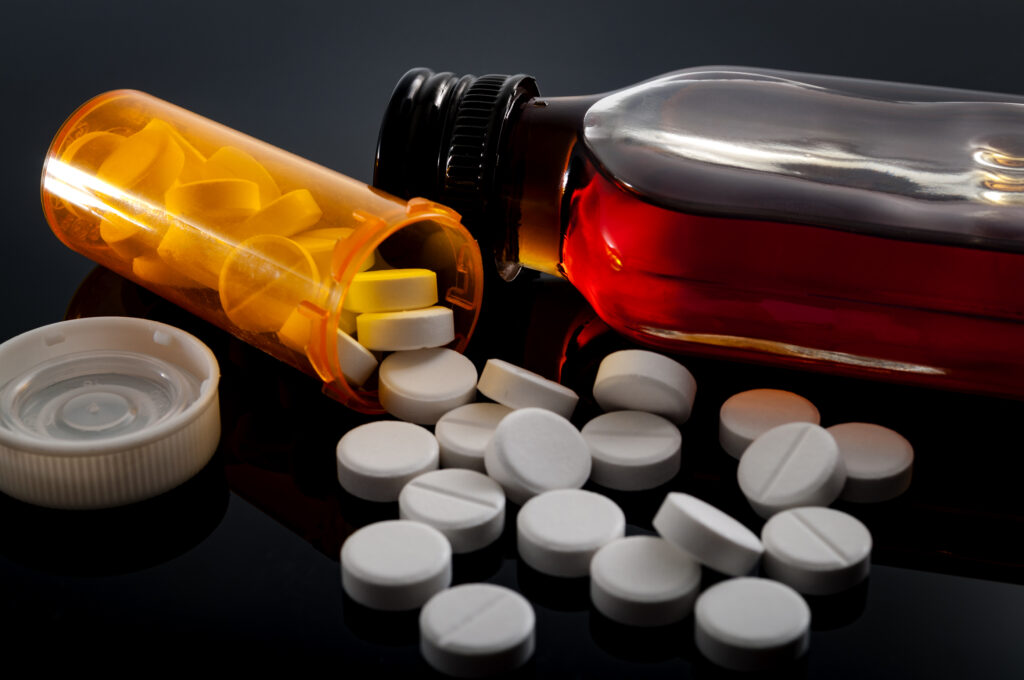‘PCP’, commonly known as ‘angel dust’, is a powerful hallucinogenic drug with dissociative properties.
Taking PCP can lead you to have a ‘trip’ like experience.
What is PCP (Phencyclidine)?
Phencyclidine (PCP) was initially marketed in the 1950s as an intravenous anaesthetic drug under various brand names, including Sernylan and Sernyl. However, its use in human medicine ceased in 1965 after patients who were administered the medication experienced psychotic effects.
PCP is still used today in veterinary medicine as a painkiller and tranquiliser but is no longer pharmaceutically available to humans.
PCP that is abused is mainly manufactured illicitly in unregulated, homemade laboratories as a recreational drug.
As with all hallucinogenics, there are many risks and dangers, especially when it comes to mental health.
This page looks at the effects of PCP in the short term and long term, the risks associated with use, and the signs of abuse and addiction.
Names for PCP
‘Street’ or ‘slang’ names include:
- Angel dust (powder form)
- Phencyclidine
- Phenyl Cyclohexyl Piperidine (PCP)
- Hog
- Peace pills (tablet form)
- Rocket Fuel
- Cliffhanger
- Kools
- Ozone
- Happy Sticks.
- Whack (liquid form)
PCP UK law
In the UK, PCP is a Class A drug controlled under the Misuse of Drugs Act 1971. The drug was also outlawed in the United States in 1978.
Possession
Possession can carry a maximum penalty of up to 7 years in prison, an unlimited fine, or both.
Supply and production
Supply and production of PCP can carry up to life imprisonment, an unlimited fine, or both.
What PCP looks like
PCP exists in various forms, such as:
- Oil
- Liquid
- Powder
- Crystal
- Pill
The colour of PCP varies based on its form and level of purity. For example, pure PCP is a white crystalline powder that is water-soluble.
PCP oil appears yellow, while pure PCP powder and crystals can range in colour from white to light brown.
How PCP is administered
Those who use the powdered version of PCP can administer the drug by:
- Smoking
- Snorting
- Dissolving in water or alcohol to drink it
In its soluble form, PCP can also be administered by injection.
Effects of PCP
This hallucinogenic drug was commonly used during the psychedelic era in the 1960s for its mind-altering effects. Some people enjoy the trippy, euphoric experience. Others will hate the effects, deeply regret taking it and never touch the drug again.
The Angel Dust drug works primarily as an NMDA receptor antagonist, which is a dissociative anaesthetic.
PCP has several effects:
- It has the potential to alter your perception of the world. You may encounter hallucinations, perceiving sights and sounds that do not exist.
- Your perception of time may fluctuate, either accelerating or decelerating.
- It can induce a profound sense of euphoria and positivity.
- Conversely, it can also trigger intense feelings of sadness, anxiety, and paranoia.
- You may develop false beliefs.
- Specific individuals may exhibit heightened aggression and violent tendencies.
A typical PCP-laced marijuana cigarette contains 1 to 10mg of the drug. The average tablet varies in weight from 1 to 6 mg. Only 0.25 mg of IV solution is required to produce sedation, compared to 10mg required via ingestion or inhalation.
What PCP does to your brain
Depending on how the drug is taken, its effects can be felt within a few minutes of smoking, snorting or injecting it, or up to 30 minutes if consumed orally.
The short-term, immediate effects can last anything from 4 to 24 hours, depending on dosage and the person’s substance metabolism.
Once PCP reaches the brain via the bloodstream, it simultaneously works on multiple neurotransmitter systems.
PCP has the following effects on the brain:
- It inhibits the reuptake of dopamine, norepinephrine, and serotonin, which causes a person to feel euphoria and many other sensory effects.
- It blocks the NMDA receptors in the brain, inhibiting the action of glutamate. The NMDA receptors are responsible for feeling pain, sensation, emotions, learning and memory.
- In higher doses, the interrupted receptors cause the brain to disconnect from normal sensory function and reality, or it can do the opposite and stimulate and excite the receptors.
The effects are highly unpredictable, and there is no knowing how a person will react to the drug before taking it. It is the unpredictability of the drug that caused it to become an illicit Class A banned substance.
Taken in small doses, the effects are similar to alcohol intoxication. However, it produces very similar effects to other hallucinogenic, dissociative drugs such as ketamine, acid, DMT or LSD and induces a psychedelic-type trip in larger doses.
Larger doses can also depress the respiratory system to the point a person stops breathing.
Deaths due to Angel Dust have been recorded as it is known to increase core body temperature and can cause heart and lung failure.
PCP’s short-term effects on the body
| Bloodshot eyes | Drowsiness |
| Irregular heartbeat | Dizziness |
| Rigid muscles | Heart failure |
| Brain haemorrhage | Stroke |
| Impaired speech | Inability to feel pain |
| Increased sweating and body temperature | Increased or decreased breathing rate |
| Poor coordination | Incontinence |
| Loss of reflexes | Loss of consciousness |
| Increased or reduced blood pressure | Jerky, abnormal eye movement or blank stare |
| Unsteadiness and loss of balance | Sleepiness |
| Kidney failure | Numbness in limbs |
| Seizures | Vomiting |
| Coma | Death |
PCP’s short-term effects on the brain
| Amnesia | Acute anxiety |
| Aggression | Depression |
| Delirium | Delusion |
| Confusion | Cognitive impairement |
| Euphoria | Depersonalisation |
| Distortion of sight and sound | Feelings of detachment |
| Altered senses (e.g. time) | Reduced inhibitions |
| Feelings of impending doom | Auditory & visual hallucinations |
| Impulsiveness | Panic |
| Violent tendencies | Suicidal ideation |
| Psychosis | Paranoia |
The long-term effects of PCP abuse
Abusing for a prolonged period can cause irreversible damage to the brain. Even using the drug for a short period can have lifelong effects if you suffer a toxic reaction.
- Long-term memory loss
- Anxiety disorder
- Difficulty in thinking and communicating
- Impaired speech, stammering and stuttering
- Problems with learning and reasoning
- Vivid flashbacks
- Weight loss
- Depression
- Psychosis.
These effects can last for up to a year after someone stops taking PCP. Some people with a long-standing addiction may never entirely go away.
Risks of PCP
PCP is one drug that can cause a particularly traumatic condition to develop, known as Hallucinogen-Persisting Perceptual Disorder (HPPD).
Depending on the severity of HPPD, symptoms can range from mild colour, sound or shape disturbances to repeatedly reliving terrifying flashbacks as if still under the influence of the mind-bending effects.
Mixing with depressants such as alcohol increases the likelihood of overdose and long-lasting damage. It will also further suppress the body’s vital organs from functioning as they should.
Whilst under the influence of PCP, a person is at a much higher risk of suffering an injury or accident. This is due to an inability to feel pain and intense feelings of invincibility and superhuman strength. Throw the realistic hallucinations into this mix, and you have a recipe for disaster.
Findings have shown that a person with PCP intoxication is at higher risk of developing toxic psychosis, which can cause hostility, paranoia, aggression, and delusion in users.
Regular abuse of Phencyclidine can also result in tolerance, meaning that a person will need to take increasing amounts or mix it with other drugs to feel the desired effect.
Regular use can also put a person at high risk of developing addiction, which is considered a life-threatening and life-limiting condition that requires urgent professional help.
Signs of abuse and addiction
Abuse and addiction can have long-lasting consequences, even once the drug has been successfully stopped.
- Frequent intoxication
- Psychological effects
- Bizarre behaviour
- Hallucinating
- Weight loss
- Strange eye movement
- Garbled speech
- Socially withdrawn
- Immobility or partial immobility due to numbness
- Unable to communicate rationally
- Uncharacteristic aggression
- Appearing to be in a dream-like state
A person who has a PCP addiction will have their lives gravely impacted by the drug, as will those who care for and love them.
Addiction is a chronic and progressive, relapsing brain disorder characterised by compulsive drug seeking and taking and continuation despite harmful consequences to mental or physical health, personal relationships, education or occupation.
PCP overdose and poisoning
Around 500 instances of PCP exposure are reported to poison centres in the US every year, and this figure seems to remain constant.
It is crucial to quickly identify and treat symptoms to prevent potential complications like rhabdomyolysis (damaged muscle) and seizures.
The clinical presentation of PCP overdose may alter between extreme agitation and sedation because PCP can produce CNS stimulation and depression through its different clinical effects in the CNS.
Overdose symptoms
- agitated or violent behaviour
- nystagmus (rhythmical, repetitive and involuntary movement of the eyes)
- tachycardia (heart rate that’s faster than usual or more than 100 beats per minute at rest)
- hypertension (blood pressure 140/90 mmHg or higher)
- anaesthesia (loss of sensation or awareness)
- analgesia (inability to feel pain)
- Seizures or convulsions
- Uncontrolled movement
- Lack of coordination
- Psychosis and hallucinations
- Coma or death
- Catatonic trance (person does not talk, move, or react)
Treatment
Treatment of PCP withdrawal symptoms should ideally be provided by a registered treatment provider experienced in treating psychedelic and hallucinogenic drug addiction as well as common co-occurring illnesses.
At Detox Plus UK, we pride ourselves on providing fast and effective evidence-based treatment within our CQC-registered treatment centres.
For more information on our inpatient detox and rehabilitation programmes, call our experts today for a free and confidential assessment of your circumstances and treatment needs.



